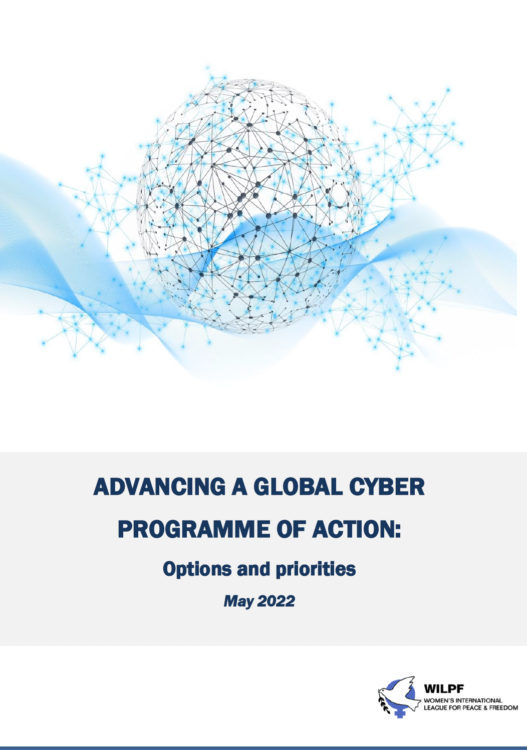In preparation for the Third Substantive Session (New York, 25-29 July 2022) of the UN Open-Ended Working Group on Peace and Security in Cyberspace (OEWG), Allison Pytlak, of the Women’s International League for Peace and Freedom (WLPF) prepared this comprehensive Report: Advancing a Global Cyber Programme of Action: Options and Priorities sponsored by the Government of Canada. The report can be found here.
“Executive Summary
In 2020, a group of states proposed creating a United Nations (UN) programme of action (PoA) on state behaviour in cyberspace.
This research paper considers the proposal to establish a PoA on state behaviour in cyberspace, with a focus on the formation, architecture, and technical aspects of a possible cyber PoA. It seeks to respond to questions about the specific operational needs of a PoA; about what such a mechanism would look like, how it would operate, and interact with stakeholders and other relevant processes; and how it would build on the existing framework for responsible state behaviour in cyber space developed in the context of the UN.
About programmes of action
Programmes of action are generally described and understood as being exactly that—action plans, or programmes containing a series of recommended actions for endorsers to implement. Programmes of action are like roadmaps, in that they outline recommended activities for endorsing parties to implement to achieve shared objectives, which are identified within the instrument. Programmes of action are different than political declarations because of their length, level of detail, and specificity. While PoAs usually mandate the convening of follow-up meetings or conferences to assess progress or facilitate exchange, they are not in themselves dialogue processes or meeting platforms. Rather, a PoA constitutes a standalone political instrument that, while not legally binding in the way that a treaty is, is intended to be implemented by whomever endorses it.
Based on an examination of six existing programmes of action, the research paper describes seven elements and characteristics of relevance to the cyber PoA.”
Im preparation of the OEWG Meeting in New York, Anne-Marie Buzatu, Vice-President and COO of ICT4Peace participated in a preparatory panel discussion on 20 May 2022 in Geneva sponsored by the Government of Canada on the “Aims and Objectives of a Cyber Programme of Action (PoA)”.
***********
Pro Memoria kindly see the submission of ICT4Peace to the OEWG II 2021-2025, prepared by Amb. Paul Meyer, Senior Advisor, ICT4Peace here
Including:
the ICT4Peace proposed “States Cyber Peer Review Mechanism” for state-conducted foreign cyber operations
and:
the ICT4Peace Call for Governments’ Commitments regarding Critical Infrastructure and Offensive Cyber Operations,
A proposal for an effective technical attribution of cyber attacks setting up an independent network of organisations engaging in attribution peer-review by Serge Droz and Daniel Stauffacher here
Finally see the Compilation of all ICT4Peace Inputs to the OEWG I (2019 -2021) by Amb. (ret.) Paul Meyer and Amb. (ret.) Daniel Stauffacher, Founder and President, ICT4Peace, here.

